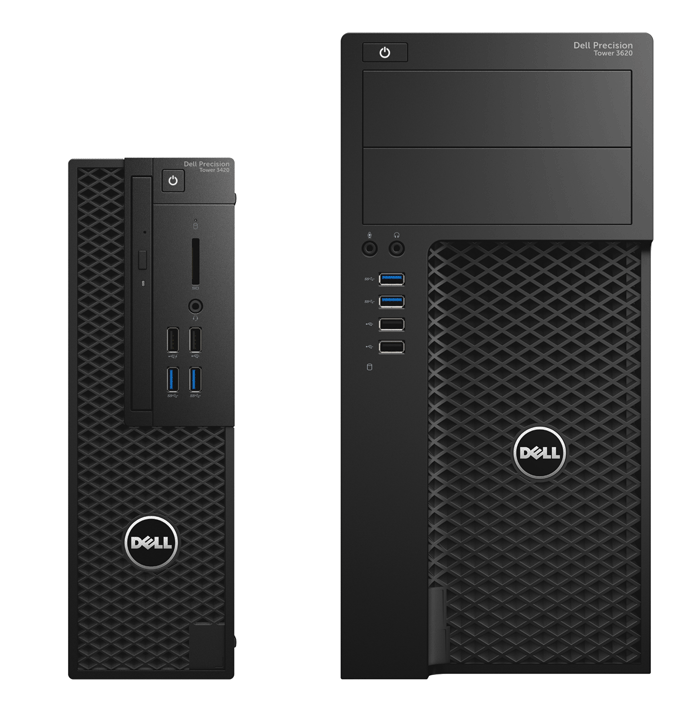Small Form Factor (SFF) Precision Tower 3420 and Mini Tower Precision 3620 feature beefed up CPU, GPU and storage
In the second of two workstation announcements today, Dell has released details of its new entry-level desktop workstations, the Dell Precision Tower 3420 and 3620.
Both machines are based on the new Intel Sky Lake processors (Core i3, i5, i7, and Xeon E3-1200 v5), feature up to 64GB RAM, support new generation M.2 PCIe SSDs and offer optional Thunderbolt 2. The Precision Tower 3420 is a Small Form Factor (SFF) workstation, which Dell says is 7% smaller than its predecessor, the Precision T1700 SFF.
In addition to size, there appear to be other notable improvements over the Precision T1700 SFF – specifically in terms of graphics and storage.
Due to their compact size and small Power Supply Units (PSUs), SFF workstations are restricted to certain GPUs.
With the Precision T1700 SFF this was the entry-level Quadro K600 but the Precision Tower 3420 now has offers the significantly more powerful Nvidia Quadro K1200, which should be of interest to more demanding 3D CAD users.
For storage, the Precision T1700 SFF had the choice of 1 x 3.5-inch HDD or 2 x 2.5-inch drives (SSDs). For users that wanted the performance of a SSD and the capacity of a 3.5-inch HDD, this combination was not possible.
Now that Dell has added support for an M.2 PCIe SSD on the Precision Tower 3420’s motherboard, users can have both SSD and 3.5-inch HDD.
Meanwhile, with a larger chassis the Dell Precision Tower 3620 offers a bigger choice of GPUs up to a Nvidia Quadro M4000 or AMD FirePro W7100.
It also has more storage options with up to 2 x 3.5-inch or 4 x 2.5-inch drives in addition to its optional on-board M.2 PCIe SSD.
Dell is also releasing version 3.0 of its Dell Precision Optimizer (DPO) software, which is used for automated performance tuning, utilisation monitoring and system updates.
The standout feature is a new System Centre Configuration Manager (SCCM), which gives administrators centralised management capabilities to deploy and configure Dell Precision Optimizer on multiple machines. Dell says analytics can be gathered from a group of users to create performance, reliability and usage reports to assess, plan, and address resource needs.
If you enjoyed this article, subscribe to AEC Magazine for FREE






